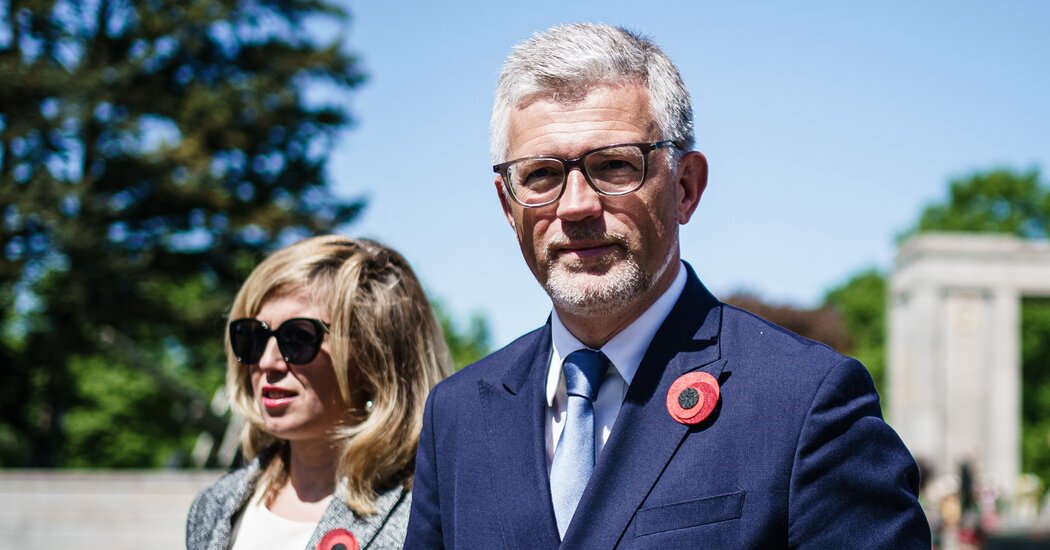BERLIN — It was as if Ukraine’s ambassador in Germany was vying for the title of most undiplomatic diplomat: Determined to spur Berlin into more urgent support for his embattled nation, he mocked the chancellor, told a former lawmaker to “shut your trap,” and posted memes on Twitter likening Germany’s lagging weapons deliveries to a snail with a bullet taped to its back.
Yet it was not the controversies of the present that ended Andriy Melnyk’s career in Berlin. Instead, it was a thorny question about the past.
Ukraine dismissed Mr. Melnyk last weekend after an interview in which he defended a nationalist Ukrainian leader who collaborated with the Nazis, and whose followers took part in massacres of Jews and Poles.
Two weeks ago, on the German YouTube program “Jung & Naiv,” Mr. Melnyk was challenged on his decision several years ago to lay flowers at the grave of Stepan Bandera, the leader of the Organization of Ukrainian Nationalists. Bandera, the journalist noted, held antisemitic, fascist views that ultimately spurred his independence fighters to collaborate with the Nazis.
“I’m against blaming all crimes on Bandera,” Mr. Melnyk said. “There is no eence that Bandera’s troops murdered hundreds of thousands of Jews,” he said, contradicting an assessment shared by most historians. “These are narratives that the Russians are pushing to this day, which find support in Germany, Poland and also in Israel.”
His comments provoked outrage among some of Ukraine’s most critical allies, including Poland, where Bandera and his group are remembered for massacring tens of thousands of Poles, and Germany, where acknowledging crimes of the Nazi past is seen as a kind of national duty.
But to many Ukrainians, Mr. Melnyk’s views are uncontroversial: Bandera — who was assassinated in Munich by Soviet agents — is seen as an anti-Soviet freedom fighter who made difficult compromises in the fight for independence. They deny his Nazi collaboration by pointing out that Germany later interned him in a concentration camp over his independence efforts.



